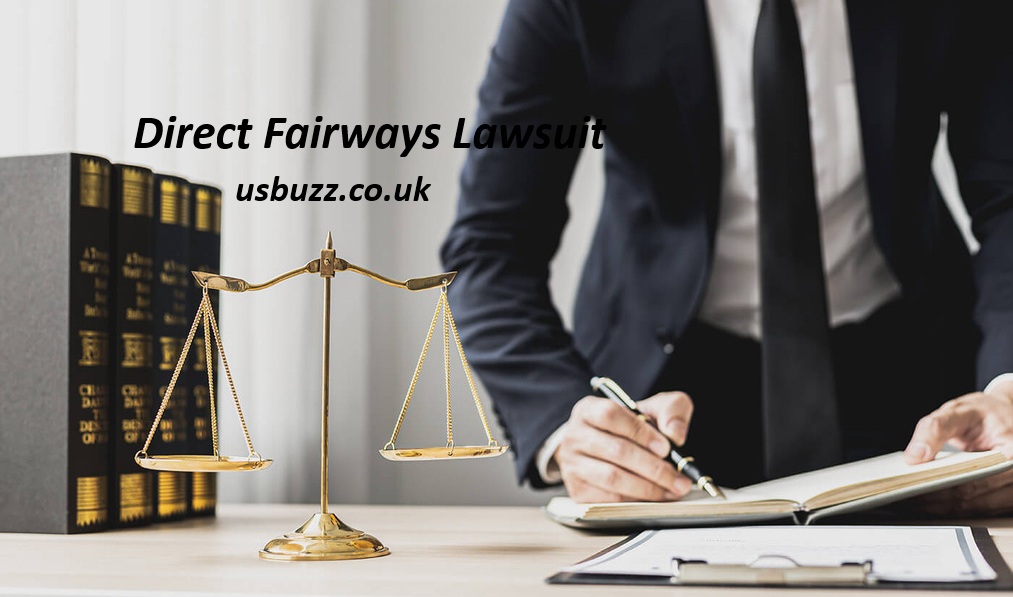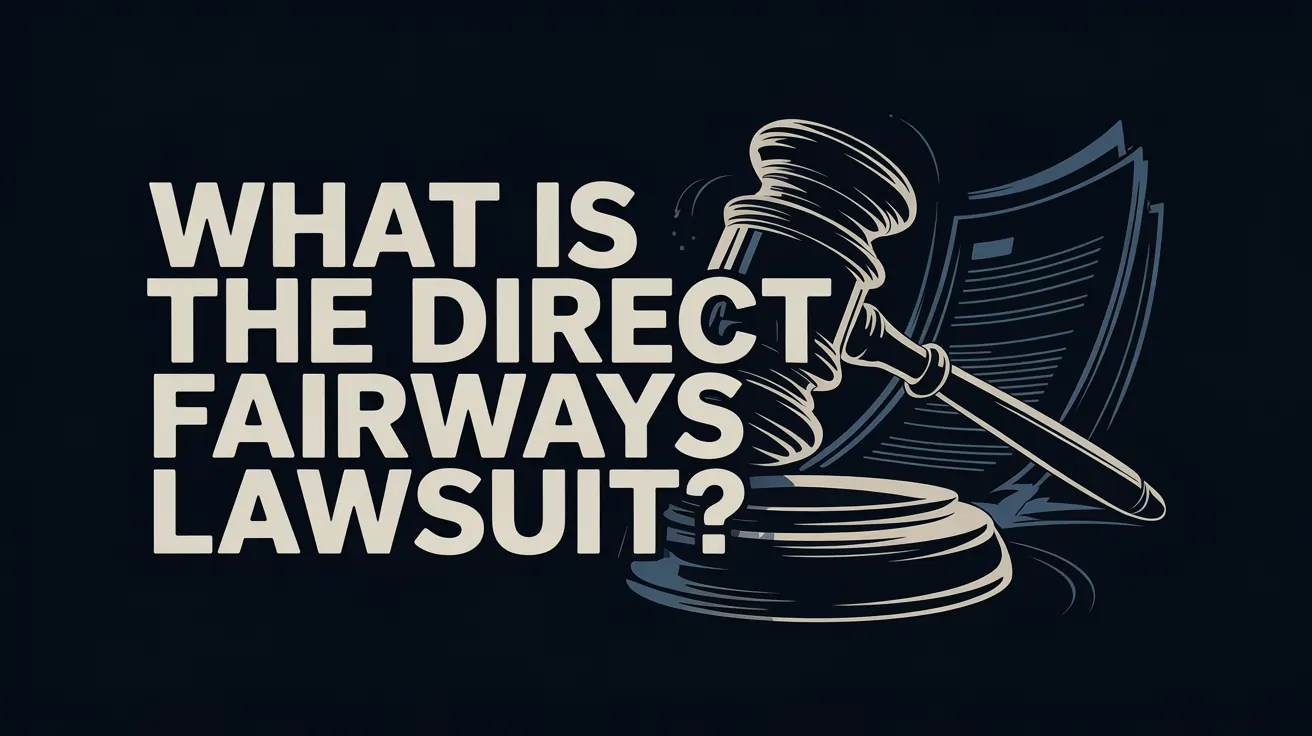
Direct Fairways Lawsuit
Introduction to Direct Fairways Lawsuit
Direct Fairways Lawsuit is a well-known marketing company that focuses on helping golf courses promote themselves through different advertising strategies. Over the years, they’ve built a reputation for offering services like ad placements in golf-related publications, digital campaigns, and sponsorship opportunities. For many golf courses and businesses tied to the industry, Direct Fairways seemed like a convenient solution to reach their audience.
However, in recent years, Direct Fairways Lawsuit has found itself in hot water with lawsuits and legal complaints surfacing against the company. These legal disputes have created quite a buzz, not only among their direct clients but also in business communities that keep an eye on marketing practices. The lawsuit has been associated with issues like aggressive sales tactics, misleading claims, and dissatisfaction among clients who felt they didn’t get the services they were promised.
Understanding the details of the Direct Fairways lawsuit isn’t just about looking at one company’s troubles. It also sheds light on broader issues in the advertising and marketing industry. Questions about transparency, customer protection, and fair business practices are all tied into this legal battle. For business owners, entrepreneurs, and everyday customers, knowing what happened can be a learning opportunity to avoid similar pitfalls.
What Led to the Lawsuit Against Direct Fairways?

At the heart of the Direct Fairways lawsuit are claims made by clients who felt misled or wronged by the company’s practices. Several reports suggest that some clients were sold advertising packages with promises of high exposure and tangible results, only to discover later that the actual outcomes didn’t meet expectations. This left customers frustrated and questioning whether they had been deliberately misinformed.
One of the major allegations that surfaced was the use of aggressive sales tactics. Some businesses claimed that Direct Fairways Lawsuit representatives pushed them into signing contracts quickly, without giving them enough time to evaluate the terms. This approach, combined with persuasive sales pitches, often left clients locked into contracts that they didn’t fully understand. When results didn’t align with the sales promises, conflict was inevitable.
Another contributing factor was the lack of transparency around the effectiveness of the advertising. Clients argued that they had difficulty tracking how their campaigns were performing, and when they tried to seek accountability, they reportedly faced resistance or lack of cooperation from the company. This combination of high expectations, limited results, and poor customer support is what fueled many of the complaints that eventually built into lawsuits.
The Key Legal Issues at Play
When you look at the Direct Fairways lawsuit from a legal standpoint, several important issues come into focus. First and foremost is consumer protection. Businesses have a responsibility to be honest and transparent about the services they’re selling. If customers can prove that they were deliberately misled or pressured into deals under false pretenses, that falls into deceptive trade practices.
Another big legal matter here is contract law. Many of the disputes center around whether Direct Fairways Lawsuit breached the contracts they signed with clients. If the terms of a contract promise certain deliverables, but the company fails to provide them, the client can argue that the contract wasn’t honored. Courts tend to look at these agreements closely, especially in cases where small businesses feel taken advantage of.
Finally, misrepresentation plays a role. If sales representatives exaggerated or made false claims during their pitches, and those statements influenced clients to sign up, that could qualify as fraudulent misrepresentation. This is a serious accusation, as it suggests intent to deceive. Proving it requires strong evidence, but if shown, it can heavily tilt a lawsuit against a company.
The Impact on Direct Fairways’ Reputation
Regardless of how lawsuits are resolved, the public perception of a company often takes a hit once legal trouble becomes widely known. For Direct Fairways, the lawsuits have definitely cast a shadow over their reputation. Many potential clients, upon hearing about the legal battles, have second thoughts about partnering with the company. In the world of marketing, where trust and credibility are essential, this can be damaging.
Reputation isn’t just about attracting new clients. It also affects employee morale and partnerships with other businesses. When a company is constantly in the headlines for negative reasons, even current employees may question whether they should stay on board. Similarly, other companies might hesitate to collaborate or recommend Direct Fairways, fearing their own credibility could be affected by association.
The long-term impact will depend on how Direct Fairways Lawsuit handles these issues moving forward. If they choose to be transparent, settle disputes fairly, and reform questionable practices, they may still be able to rebuild trust. But if they downplay the lawsuits or continue business as usual, the damage could become permanent. In today’s digital era, where reviews and online reputations carry enormous weight, recovering from this kind of blow isn’t easy.
Lessons for Businesses from the Direct Fairways Lawsuit Case
The Direct Fairways lawsuit isn’t just a cautionary tale for marketing companies—it’s a learning opportunity for all businesses. One of the most obvious lessons is the importance of transparency. Companies that overpromise and underdeliver may win a few quick sales in the short term, but in the long run, they risk lawsuits and reputational damage that can far outweigh those early gains.
Another key takeaway is the value of strong customer support. Even if a service doesn’t perform as expected, businesses can often smooth things over with clients by being responsive, accountable, and open to resolving problems. Many of the complaints against Direct Fairways Lawsuit point to frustration not just with poor results, but also with how the company handled feedback and concerns.
Finally, the case underscores the need for customers to do their due diligence before signing contracts. While companies bear responsibility for honesty, customers also have a role in protecting themselves. Asking for written guarantees, requesting detailed reports, and carefully reading terms before committing can help avoid future disputes.
How the Lawsuit Reflects on the Marketing Industry
The Direct Fairways lawsuit isn’t happening in a vacuum. It reflects larger issues in the marketing and advertising industry, particularly in niche markets like golf where businesses may not have as many advertising options. This dynamic can create an environment where companies rely heavily on marketing agencies and may be more vulnerable to aggressive sales strategies.
One of the broader industry challenges is accountability. Unlike traditional advertising, where reach and impressions are easier to measure, niche marketing campaigns can be harder to track. This opens the door for companies to make bold claims without always having the numbers to back them up. The Direct Fairways Lawsuit case highlights the need for more accountability and transparency across the entire industry.
It also raises questions about regulation. Should there be stricter oversight for companies operating in specialized marketing fields? Many argue that increased regulation could help protect small businesses from being misled or taken advantage of. While others believe that self-regulation and ethical business practices are the better solution, cases like this one add fuel to the debate.
The Future of Direct Fairways Lawsuit
Looking ahead, the big question is: what’s next for Direct Fairways? Lawsuits don’t always spell the end for a company. In many cases, businesses emerge from legal disputes with valuable lessons and renewed focus on doing things right. For Direct Fairways, the path forward may involve rebranding, restructuring their sales process, and being more transparent with clients about what they can realistically expect from their services.
If the company acknowledges its mistakes and takes steps to correct them, it could potentially rebuild trust. This would require not only settling legal disputes fairly but also implementing long-term changes that prevent the same issues from happening again. For instance, offering clear performance reports, avoiding high-pressure sales tactics, and training employees in ethical sales practices could help rebuild credibility.
On the flip side, if Direct Fairways Lawsuit doesn’t adapt and continues operating with the same strategies that led to these lawsuits, their long-term survival could be in jeopardy. In today’s competitive marketing landscape, customers have more choices than ever. Transparency and trust are becoming major deciding factors, and without them, even well-known companies can struggle to stay afloat.
Conclusion: Why This Case Matters
The Direct Fairways lawsuit is more than just a legal battle—it’s a reminder of the importance of honesty, accountability, and customer care in business. While the company may have once been seen as a go-to marketing solution for golf courses, its reputation has been challenged by allegations of aggressive tactics and unfulfilled promises.
For business owners, this case emphasizes the importance of doing research, asking tough questions, and not rushing into contracts. For companies, it’s a wake-up call to prioritize transparency and long-term trust over short-term profits. And for the marketing industry as a whole, it’s an opportunity to reflect on the standards that need to be upheld to maintain credibility with clients.
At the end of the day, lawsuits like the one against Direct Fairways Lawsuit are cautionary tales. They remind us that while legal outcomes are important, the bigger picture is about how businesses treat their customers. Trust, once broken, is difficult to regain, and in industries built on relationships, it’s the single most valuable asset a company can have.